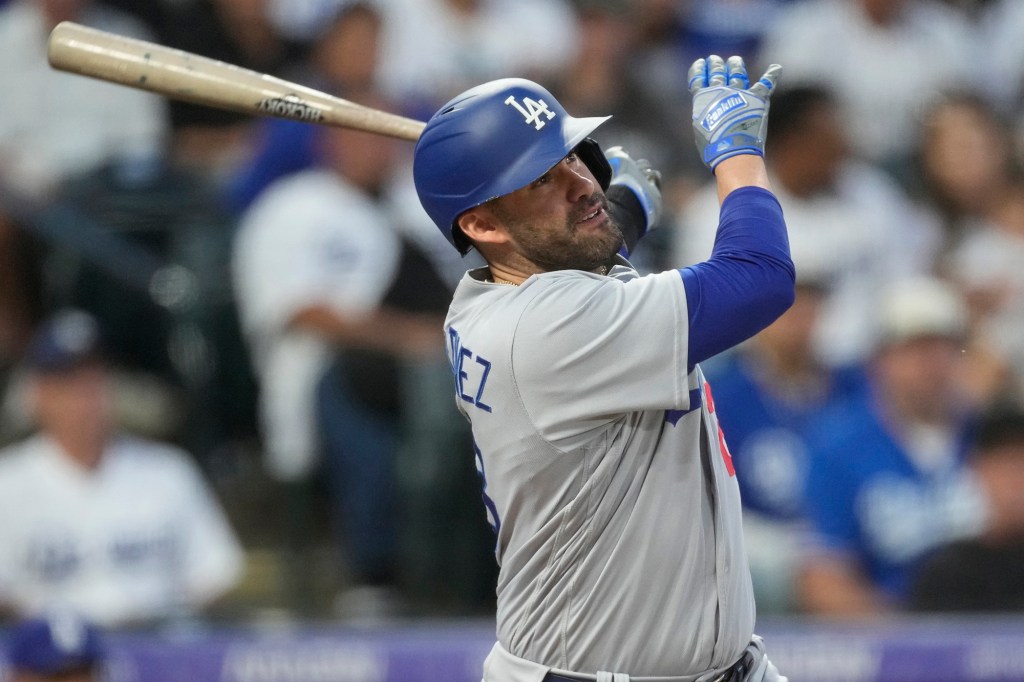The Mets waited out J.D. Martinez until the price became palatable.
But even a bargain, heavily deferred, $12 million pact for one season probably will cost the Mets around $19 million, considering the present-day value of the deal, the club’s payroll and a luxury-tax hit of about $9 million.
Steve Cohen deemed there was room in an already deep budget for a DH bat to provide lineup protection for Pete Alonso.

“We keep talking about being opportunistic, and I think that was an example of it,” the Mets owner said before Friday’s 3-1 Opening Day loss to the Brewers at Citi Field. “It came down to a price that was reasonable. Remember, I’m in the 110 percent tax, so it’s not that price — it’s [that price] times two-plus.
“You can’t do too many of those because it blows the budget out, and obviously you still want to leave flexibility for during the year. But it came down to a level where we said, ‘Why not?’ ”
The next question as the season gets going: Would Cohen do it again?
Because the Mets are above the highest threshold of $297 million, any additional dollar spent would come with a 110 percent tax.

If the Mets are in contention at the trade deadline — and Cohen reiterated the playoffs are a goal for this season — Cohen sounded at least open, if not eager, to expand the largest payroll in the sport.
“We’ll make that decision when we get there,” Cohen said. “We know everything is 110 cents on the dollar, so obviously that’s an expensive decision. But I am competitive. And so if the right thing comes along at the right moment, we’ll explore it.”
For luxury-tax purposes, the Mets’ year-end payroll with penalties included projects to be about $340.5 million, according to Cot’s Contracts.
Last year’s record-breaking (for price, not wins) roster cost around $375 million, which Cohen said was “a little over the top.”
Cohen anticipates that as the Mets build up the farm system, the payrolls will come down because prospects on cost-controlled deals are far cheaper than buying through free agency.
Still, he does not anticipate that even with a fully functioning system the Mets’ payroll would fall below the base threshold.
If a team dips below a luxury-tax threshold for a season, the penalty level is reset.
The first year exceeding the threshold comes with a 20 percent tax on all overages; the second year 30 percent; the third (or more) straight, 50 percent.
The lowest threshold level this year is $237 million, which “seems far away,” Cohen said in acknowledging the Mets’ payrolls will remain at least relatively high.
“It just seems like that could be hard to do,” Cohen said about falling below the lowest level. “I think the only way you really could do it would be if the farm system really produces. … So that’s possible. But we don’t have to do that. I’m perfectly happy to finance us in a way that that isn’t a goal of mine.”